Introduction
The ketogenic diet, or keto diet, has surged in popularity as a powerful approach to weight loss and improved health. At the core of this dietary strategy lies the concept of ketosis. But what exactly is ketosis, and how does it work? In this comprehensive article, we will delve into the science behind ketosis, exploring its mechanisms, benefits, and potential risks.
The ketogenic diet, often referred to as the keto diet, has captivated the health and fitness world for its remarkable potential to transform both body and mind. Yet, at the heart of this dietary phenomenon lies a fascinating physiological process known as ketosis. Let’s embark on a journey into the intricate science of ketosis, unearthing the profound mechanisms, the array of benefits, and the nuances of potential risks that it entails.
Unlocking the Mysteries of Ketosis: Ketosis, in its essence, is a metabolic state where your body shifts from relying on carbohydrates as its primary source of energy to predominantly using fats. This transition is nothing short of a metabolic marvel. As you drastically reduce your carb intake, your liver begins to break down fats into molecules called ketones. These ketones then become the primary fuel for your cells, including your brain, which traditionally relies heavily on glucose. The result is a profound shift in your body’s energy utilization.
The Fat-Burning Phenomenon: One of the most captivating aspects of ketosis is its remarkable ability to transform your body into an efficient fat-burning machine. With carbohydrates in limited supply, your body taps into its fat reserves, breaking them down for energy. This process not only leads to fat loss but can also help control appetite, making it easier to adhere to a reduced-calorie diet.
Cognitive Clarity and Steady Energy: Beyond its impact on weight management, ketosis has garnered attention for its cognitive benefits. Many individuals report enhanced mental clarity and improved focus while in a state of ketosis. This is attributed to the steady supply of energy that ketones provide to the brain, preventing the energy crashes associated with carb-centric diets.
Balancing Blood Sugar: Ketosis may also offer a potential lifeline for those struggling with blood sugar control. By minimizing carbohydrate intake and stabilizing blood sugar levels, the ketogenic diet may have a positive impact on individuals with type 2 diabetes or prediabetes.
The Pros and Cons: While ketosis offers an array of benefits, it’s essential to navigate this dietary path with awareness. Potential risks include the “keto flu,” an initial adjustment phase characterized by symptoms like fatigue and irritability, as well as the need for meticulous meal planning to ensure you meet your nutritional needs. It’s crucial to maintain a balanced intake of nutrients, monitor your health, and consult with a healthcare provider when necessary.
A Lifestyle Transformation: Ultimately, ketosis is more than just a diet—it’s a lifestyle transformation that involves a deep understanding of your body’s metabolic processes. It’s about finding a sustainable approach to eating that aligns with your health goals and suits your individual needs. With this knowledge, you can harness the power of ketosis to not only achieve weight loss but also unlock the door to improved health and vitality.
In this comprehensive exploration of ketosis, we’ll peel back the layers of this metabolic marvel, examining the intricacies of how it works, the diverse benefits it offers, and the potential caveats to be aware of. By the end of this journey, you’ll not only grasp the science behind ketosis but also gain insights into how to leverage it effectively on your path to enhanced health and well-being.
For additional details, consider exploring the related content available here The Ketogenic Diet: A Detailed Beginner’s Guide to Keto
Understanding Ketosis
Ketosis is a metabolic state that occurs when the body shifts from primarily using carbohydrates as its source of energy to using fats. This transition is achieved by significantly reducing carbohydrate intake and increasing the consumption of fats. When carbohydrates are limited, the body’s primary source of energy, glucose, becomes scarce. As a result, the body starts breaking down fat into molecules called ketones, which can be used as an alternative fuel source. This metabolic switch is the foundation of the ketogenic diet.
Ketosis, the cornerstone of the ketogenic diet, is a fascinating metabolic state where the body undergoes a remarkable transformation in its energy utilization. It all begins with a strategic dietary shift – significantly reducing carbohydrate intake while embracing a higher consumption of fats.
As carbohydrates diminish from the diet, the body faces a shortage of its primary energy source, glucose. In this scarcity, it turns to a brilliant survival mechanism. It begins to break down stored fat into tiny molecules known as ketones. These ketones are not only a suitable substitute for glucose but also have some unique advantages. They can efficiently fuel the brain and other tissues, providing a consistent and reliable energy source.
This metabolic transition is akin to unlocking the body’s built-in backup generator. It’s as if the body has tapped into its fat reserves, creating a sustainable energy supply that can be accessed whenever needed. The result is not only the breakdown of fat stores but also the potential for weight loss and enhanced energy levels.
The ketogenic diet harnesses the power of ketosis by carefully orchestrating this shift in energy substrates. It’s not just about losing weight; it’s about optimizing energy utilization and providing a metabolic advantage. By embracing a low-carb, high-fat approach, individuals can tap into the remarkable benefits of ketosis, ultimately helping them achieve their health and wellness goals.
To delve further into this matter, we encourage you to check out the additional resources provided here: What to know about the keto diet from experts at KU Medical Center …
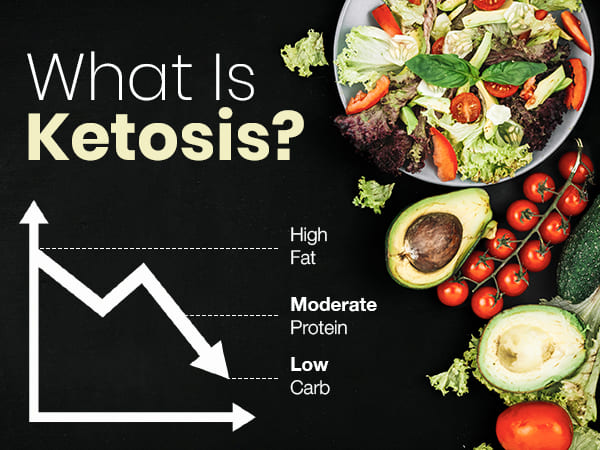
The Role of Ketones
Ketones, particularly beta-hydroxybutyrate (BHB), acetoacetate, and acetone, are produced in the liver when fat is broken down. These molecules serve as an efficient and clean source of energy for the body and the brain. Unlike glucose, which can cause energy spikes and crashes, ketones provide a steady supply of fuel, leading to improved energy levels and mental clarity.
The production of ketones in the liver represents a metabolic shift that offers several additional benefits beyond stable energy levels and mental clarity:
Efficient Fat Burning: The conversion of fat into ketones is a highly efficient process. It allows the body to tap into its fat stores for energy, making it a favored approach for those aiming to lose weight or manage their body composition. When in a state of ketosis, individuals become fat-adapted, meaning they burn fat effectively as their primary energy source.
Appetite Suppression: Ketones, specifically BHB, have been associated with appetite suppression. Many people on a ketogenic diet report reduced feelings of hunger, which can be advantageous for calorie control and weight management. The stable energy provided by ketones contributes to a feeling of fullness and satisfaction.
Enhanced Fat Loss: Ketones can help enhance the process of fat loss. They promote the breakdown of stored fat cells, enabling the release of fatty acids for energy. This makes the ketogenic diet a valuable tool for those seeking to shed excess body fat while preserving lean muscle mass.
Improved Insulin Sensitivity: A ketogenic diet may lead to improved insulin sensitivity. By minimizing carbohydrate intake, blood sugar levels remain stable, reducing the need for insulin. This can be particularly beneficial for individuals with insulin resistance or type 2 diabetes.
Potential Therapeutic Benefits: Beyond weight management and energy stability, the ketogenic diet has shown promise as a therapeutic approach. It is being explored for its potential benefits in managing conditions such as epilepsy, Alzheimer’s disease, and certain neurological disorders. The neuroprotective effects of ketones are an active area of research.
Longer Lasting Energy: Ketones provide sustained energy without the spikes and crashes associated with glucose. This characteristic can be especially valuable for athletes and individuals seeking improved endurance during physical activities.
Mental Clarity and Focus: In addition to stable energy levels, many people report enhanced mental clarity, focus, and cognitive function when in a state of ketosis. Ketones are an efficient fuel source for the brain, and some individuals find that they experience improved cognitive performance.
Blood Lipid Profile: While more research is needed, some studies suggest that the ketogenic diet can lead to favorable changes in blood lipid profiles. It may result in increased levels of “good” HDL cholesterol and reduced levels of triglycerides.
Inflammation Reduction: Some individuals experience reduced levels of inflammation on a ketogenic diet. Chronic inflammation is associated with various health issues, so this potential benefit is significant.
It’s important to note that while the ketogenic diet offers these potential advantages, it may not be suitable for everyone. It requires careful planning, monitoring, and individualization. Consulting with a healthcare professional or registered dietitian is advisable before embarking on a ketogenic journey, especially if you have underlying health conditions or specific dietary needs.
If you’d like to dive deeper into this subject, there’s more to discover on this page: Multi-dimensional roles of ketone bodies in fuel metabolism …
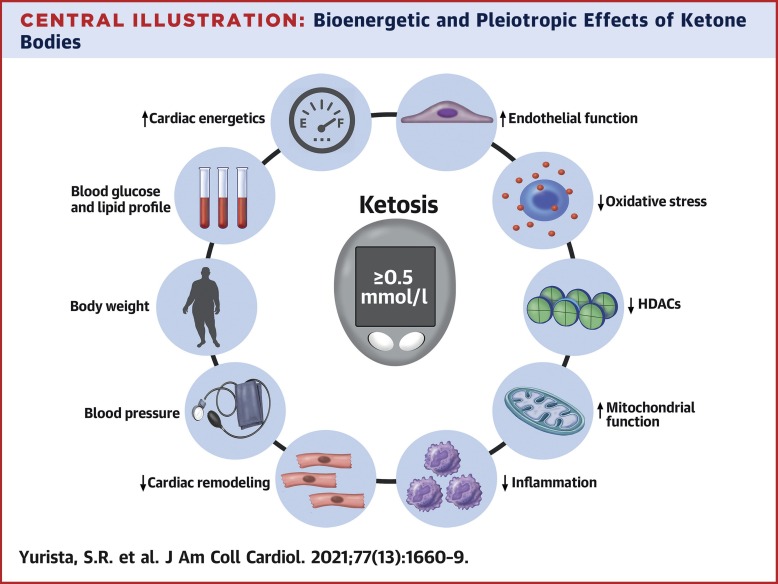
Weight Loss
One of the most well-known benefits of ketosis is weight loss. When the body is in a state of ketosis, it becomes highly efficient at burning stored fat for energy, making it an effective strategy for shedding excess pounds.
Indeed, the weight loss aspect of ketosis is one of its most compelling features, and understanding how it works can shed light on why it’s so effective.
1. Fat as the Primary Fuel: In a typical diet rich in carbohydrates, the body primarily uses glucose (derived from carbs) as its primary source of energy. When glucose is plentiful, the body stores excess as glycogen in the liver and muscles. However, these glycogen stores are limited and can only sustain energy for a relatively short period.
2. Tapping into Fat Stores: When you embark on a ketogenic diet and significantly reduce carb intake, the body’s glucose supply dwindles. As a result, it turns to an alternative energy source: fat. Fat stores, both in the form of triglycerides in adipose tissue (body fat) and dietary fat, become the primary fuel reservoir.
3. Breakdown of Fatty Acids: The process of burning fat for energy involves breaking down fatty acids into molecules known as ketones, which are then used by cells throughout the body, including the brain, for fuel. Ketones are a more efficient source of energy compared to glucose, and this metabolic shift often leads to increased fat burning.
4. Appetite Suppression: Another aspect of ketosis that aids weight loss is reduced appetite. When you’re primarily burning fat for energy, the body’s hunger-regulating hormones, particularly ghrelin, tend to decrease. This reduction in appetite can make it easier to maintain a caloric deficit, which is essential for weight loss.
5. Stable Blood Sugar: Ketosis promotes stable blood sugar levels by minimizing the spikes and crashes associated with carbohydrate-rich diets. This helps control cravings and overeating, contributing to a more controlled calorie intake.
6. Enhanced Fat Loss: What sets ketosis apart from other diets is its unique ability to target and burn stored body fat efficiently. This means not only shedding excess pounds but also reducing body fat percentage, leading to a leaner, more defined physique.
7. Sustained Energy: While some diets can leave you feeling tired and fatigued due to fluctuating blood sugar levels, ketosis offers sustained energy throughout the day. This can lead to increased physical activity and calorie expenditure, further supporting weight loss efforts.
8. Improved Insulin Sensitivity: Ketosis has been linked to improved insulin sensitivity, which is crucial for individuals with insulin resistance or type 2 diabetes. By reducing insulin resistance, the body can manage blood sugar more effectively and store less fat.
In conclusion, the weight loss benefits of ketosis stem from the body’s shift to using fat as the primary source of energy. This metabolic adaptation promotes fat burning, appetite control, stable blood sugar levels, and sustained energy. It’s a multifaceted approach that not only facilitates weight loss but also offers a range of other health advantages, making the ketogenic diet a compelling option for those seeking to shed excess pounds and improve their overall well-being.
If you’d like to dive deeper into this subject, there’s more to discover on this page: What to know about the keto diet from experts at KU Medical Center …

Stable Blood Sugar
Ketosis can lead to improved blood sugar control, making it a valuable approach for individuals with type 2 diabetes or insulin resistance. By reducing carbohydrate intake, the need for insulin decreases, helping stabilize blood sugar levels.
The impact of ketosis on blood sugar control is a pivotal aspect of its potential health benefits, particularly for those grappling with type 2 diabetes or insulin resistance. Let’s delve deeper into this phenomenon and uncover the ways in which ketosis can be a transformative strategy for managing blood sugar levels.
A Revolution in Blood Sugar Regulation: One of the hallmark advantages of the ketogenic diet is its ability to revolutionize how the body manages blood sugar. Here’s how it works: When you consume carbohydrates, they are broken down into glucose, causing a surge in blood sugar levels. To regulate this spike, the body releases insulin, a hormone responsible for ushering glucose into cells for energy use or storage.
Reducing Carb Dependency: In ketosis, the equation shifts dramatically. By substantially curtailing carbohydrate intake, there is a reduced influx of glucose into the bloodstream. As a result, the need for insulin diminishes significantly. With less glucose to contend with, the body can maintain steadier blood sugar levels without the frequent insulin spikes and crashes associated with carb-rich diets.
Enhanced Sensitivity: The ketogenic diet can also enhance insulin sensitivity—a key factor in blood sugar control. Improved insulin sensitivity means your cells become more receptive to the hormone’s signals, making it more efficient at transporting glucose out of the bloodstream and into cells where it’s needed. This heightened sensitivity can help prevent insulin resistance, a common precursor to type 2 diabetes.
A Potential Lifeline for Diabetes: For individuals with type 2 diabetes, the ketogenic diet can be a lifeline. By minimizing carb intake and stabilizing blood sugar levels, it may be possible to reduce the need for medication and better manage the condition. However, it’s essential to embark on such dietary changes under medical supervision, as medication adjustments may be necessary to prevent hypoglycemia (low blood sugar).
Individualized Approaches: It’s worth noting that the effectiveness of ketosis for blood sugar control can vary among individuals. Some may experience rapid and dramatic improvements, while others may see more gradual changes. Factors such as genetics, overall health, and the degree of carbohydrate restriction all play a role.
Monitoring and Consultation: If you’re considering the ketogenic diet for blood sugar management, meticulous monitoring is key. Regular blood glucose testing and consultation with a healthcare provider or registered dietitian are essential steps. They can help tailor the diet to your specific needs, adjust medication as necessary, and provide guidance on maintaining balanced nutrition.
A Comprehensive Health Strategy: While ketosis holds promise for blood sugar control, it’s essential to approach it as part of a comprehensive health strategy. Combining a well-designed ketogenic diet with regular physical activity, stress management, and other lifestyle factors can further enhance blood sugar regulation and overall well-being.
In summary, ketosis’s impact on blood sugar control is a remarkable facet of this dietary approach. By reducing carbohydrate dependency and enhancing insulin sensitivity, it offers new hope for individuals with type 2 diabetes or insulin resistance. However, it’s crucial to approach ketosis with a personalized, informed, and monitored perspective, collaborating closely with healthcare professionals to optimize blood sugar management and overall health.
Additionally, you can find further information on this topic by visiting this page: Ketosis After Intake of Coconut Oil and Caprylic Acid-With and …

Enhanced Mental Focus
Many people report increased mental clarity and focus while in ketosis. The brain can effectively use ketones for energy, which may lead to improved cognitive function.
The cognitive benefits experienced by individuals in ketosis go beyond mere anecdotal reports; there’s a fascinating science behind this phenomenon. When the body is in ketosis, it’s not just the muscles and organs that benefit from the efficient utilization of ketones; the brain, our body’s control center, also thrives.
One of the key reasons behind the enhanced mental clarity and focus in ketosis is the brain’s ability to efficiently tap into the energy provided by ketones. Unlike glucose, which can sometimes result in energy spikes and crashes, ketones offer a more stable and sustained source of fuel for the brain. This steady supply of energy can lead to improved cognitive function, which manifests as heightened alertness, better concentration, and enhanced mental sharpness.
Furthermore, ketosis may also have neuroprotective effects. Some research suggests that ketones have antioxidant and anti-inflammatory properties, potentially helping to safeguard brain cells from oxidative stress and inflammation, both of which are implicated in cognitive decline.
In practical terms, this means that individuals in ketosis may experience improved problem-solving abilities, quicker decision-making, and a heightened sense of mental clarity. Whether you’re a student looking to boost your academic performance or a professional seeking increased productivity, the cognitive benefits of ketosis offer a promising avenue for enhancing mental acuity and overall brain function.
For a comprehensive look at this subject, we invite you to read more on this dedicated page: The Keto Diet: Unveiling the Secrets of a Transformative Eating Plan

Reduced Inflammation
Ketosis may have anti-inflammatory effects, potentially benefiting individuals with conditions characterized by chronic inflammation.
Ketosis and its potential anti-inflammatory effects offer hope and promise for individuals dealing with various conditions marked by chronic inflammation. Here’s a deeper exploration of how ketosis can contribute to reducing inflammation:
Inflammation and Health: Chronic inflammation is recognized as a contributing factor to a wide range of health issues, including cardiovascular diseases, diabetes, autoimmune disorders, and neurodegenerative conditions. Managing inflammation is crucial for overall health and well-being.
Ketogenic Diet and Inflammation: The ketogenic diet’s impact on inflammation has garnered significant attention in recent years. Some studies suggest that the diet can lead to reduced levels of inflammatory markers in the body, such as C-reactive protein (CRP). Lowering these markers is associated with a decreased risk of chronic diseases linked to inflammation.
Ketones as Anti-Inflammatory Agents: Ketones themselves may possess anti-inflammatory properties. They can modulate the immune response and inhibit the production of pro-inflammatory molecules. This can result in a reduction in overall inflammation and its detrimental effects on health.
Inflammation and Metabolic Health: Chronic inflammation is closely tied to metabolic dysfunction, including insulin resistance and obesity. The ketogenic diet, by promoting weight loss and improving insulin sensitivity, can indirectly address the root causes of inflammation linked to metabolic issues.
Autoimmune Disorders: Ketosis has been explored as a potential therapy for autoimmune disorders, where the immune system mistakenly attacks healthy tissues. By dampening the inflammatory response, ketosis may help manage symptoms in some individuals with autoimmune conditions.
Neuroinflammation: Inflammation in the brain, known as neuroinflammation, is a key feature of neurodegenerative diseases like Alzheimer’s and Parkinson’s. Some research indicates that the ketogenic diet’s ability to provide an alternative fuel source for the brain (ketones) may reduce neuroinflammation, potentially offering neuroprotective benefits.
Individual Responses Vary: It’s important to note that individual responses to the ketogenic diet and ketosis can vary. While many people experience reduced inflammation, not everyone will respond in the same way. Factors such as genetics, the specific health condition, and adherence to the diet can influence outcomes.
Consultation with Healthcare Professionals: For individuals with chronic inflammatory conditions or concerns about inflammation, consulting with healthcare professionals is crucial. They can provide personalized guidance, monitor progress, and help tailor dietary and lifestyle approaches to address specific health needs.
In conclusion, the potential anti-inflammatory effects of ketosis hold promise for individuals grappling with chronic inflammatory conditions. While research continues to shed light on the mechanisms underlying these effects, the ketogenic diet can be a valuable dietary strategy to consider, especially under the guidance of healthcare professionals, for those seeking relief from inflammation-related health challenges.
Explore this link for a more extensive examination of the topic: How Ketogenic Diets Curb Inflammation in the Brain | UC San …
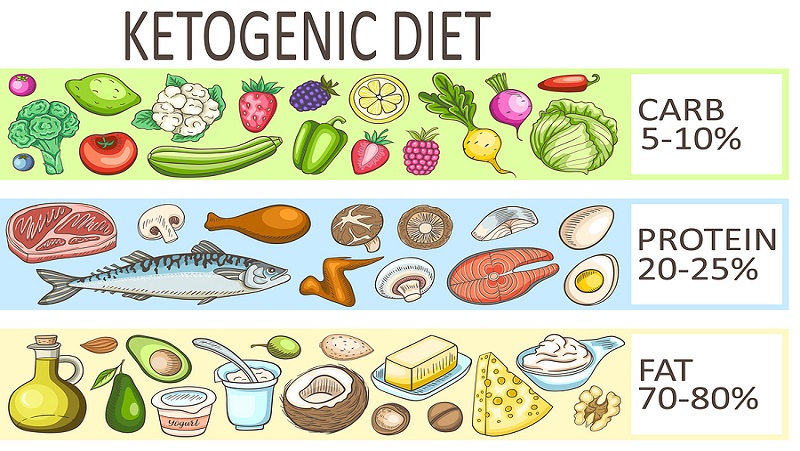
Epilepsy Management
Ketogenic diets have been used for decades to manage drug-resistant epilepsy in children and adults. The mechanisms behind this effect are still being studied, but ketosis appears to have a positive impact on seizure control.
The utilization of ketogenic diets for managing drug-resistant epilepsy represents a remarkable and evolving aspect of ketosis. This therapeutic application has demonstrated promising results, particularly in children and adults who have not responded well to conventional epilepsy treatments. Let’s delve deeper into the mechanisms and implications of using ketosis to control seizures:
1. Shifting Brain Fuel: One of the primary theories behind the effectiveness of ketogenic diets in epilepsy management revolves around how the brain utilizes energy. In ketosis, the brain predominantly relies on ketones for fuel instead of glucose. This shift may lead to improved neuronal stability and reduced hyperexcitability, which are key factors in seizure control.
2. GABAergic Modulation: Ketosis may influence the brain’s neurotransmitter systems, particularly gamma-aminobutyric acid (GABA), which is an inhibitory neurotransmitter. GABA plays a crucial role in regulating neuronal excitability. Some studies suggest that ketosis may enhance GABAergic activity, potentially dampening the hyperexcitability that triggers seizures.
3. Anti-Inflammatory Effects: Inflammation in the brain has been associated with epilepsy, and ketosis appears to have anti-inflammatory properties. By reducing neuroinflammation, ketosis may help create an environment less conducive to seizures.
4. Metabolic Efficiency: Ketosis enhances the efficiency of cellular energy production. Neurons in the brain may function more efficiently in a ketogenic state, reducing the chances of abnormal electrical activity that can lead to seizures.
5. Enhanced Mitochondrial Function: Mitochondria, the energy powerhouses of cells, function more effectively in ketosis. This improved mitochondrial function may provide neurons with the energy needed to maintain stability and resist seizures.
6. Impact on Medication: Ketogenic diets might alter the metabolism of certain antiepileptic medications, potentially increasing their effectiveness. This effect requires careful monitoring and dosage adjustments under medical supervision.
7. Personalized Treatment: It’s worth noting that the response to ketogenic diets in epilepsy management can vary from person to person. Some individuals experience a significant reduction in seizure frequency, while others may not respond as effectively. Therefore, it’s essential to work closely with healthcare providers and specialists to determine the most suitable treatment approach.
In conclusion, while the precise mechanisms underlying the positive impact of ketosis on seizure control are still under investigation, the use of ketogenic diets as a therapeutic option for drug-resistant epilepsy is a promising and well-established field. The ability to manage seizures through dietary interventions offers hope and improved quality of life for individuals who have not found relief from traditional treatments. As research continues to uncover the intricacies of this relationship, the potential for even more effective epilepsy management through ketosis remains an exciting avenue for exploration.
For a comprehensive look at this subject, we invite you to read more on this dedicated page: Ketogenic Diet and Epilepsy – PMC

Risks and Considerations
While ketosis offers numerous benefits, it’s essential to approach it with caution:
While the ketogenic diet and the state of ketosis offer a plethora of potential benefits, it’s crucial to approach this dietary strategy with a cautious and informed mindset. Here’s an extended exploration of the important considerations to keep in mind:
1. Individual Variability: One of the most significant aspects of the ketogenic diet is that its effects can vary significantly among individuals. Factors like genetics, metabolism, activity level, and overall health play a role in how your body responds to ketosis. It’s essential to recognize that what works effectively for one person may not yield the same results for another.
2. Initial Adjustment Phase: As you transition into ketosis, you may experience what’s commonly referred to as the “keto flu.” This phase can bring about symptoms like fatigue, irritability, headache, and digestive discomfort. While these symptoms are typically temporary, they can be challenging to navigate. Being prepared for this adjustment period can help you stay committed to your dietary goals.
3. Nutritional Balance: Maintaining nutritional balance while following the ketogenic diet is a critical consideration. The diet restricts carbohydrate intake significantly, which can potentially lead to deficiencies in essential nutrients like fiber, vitamins, and minerals. To mitigate this risk, it’s vital to plan your meals carefully, incorporate a variety of low-carb vegetables, and consider supplementation if necessary.
4. Potential Health Risks: While many people experience health improvements on the ketogenic diet, it’s not without potential risks. Some individuals may encounter elevated levels of cholesterol, particularly LDL cholesterol (the “bad” cholesterol), which could raise concerns about cardiovascular health. Regular monitoring of cholesterol levels and consultation with a healthcare provider are prudent steps.
5. Long-Term Sustainability: The ketogenic diet is often praised for its short-term efficacy, particularly in weight loss. However, its long-term sustainability can be challenging for some individuals. The highly restrictive nature of the diet, which limits the consumption of many carb-rich foods, can be challenging to maintain over extended periods. It’s essential to consider whether the ketogenic lifestyle aligns with your long-term health and dietary goals.
6. Professional Guidance: Consulting with a healthcare provider or registered dietitian is a fundamental aspect of adopting the ketogenic diet. They can help assess whether the diet is appropriate for your individual health profile and provide guidance on managing potential risks. Regular check-ups and monitoring of key health markers are crucial to ensure your well-being on the diet.
7. Balanced Approach: For many individuals, a balanced approach that combines the principles of the ketogenic diet with periods of flexibility and variety may be a more sustainable choice. This approach can help you enjoy the benefits of ketosis while maintaining a diverse and well-rounded diet.
8. Lifestyle Considerations: Lifestyle factors, including social and cultural aspects of eating, can influence the feasibility of adhering to a strict ketogenic diet. It’s important to find a balance that allows you to enjoy social occasions and cultural traditions while staying committed to your dietary goals.
In conclusion, while ketosis offers an array of potential benefits, it’s not a one-size-fits-all solution, and it comes with its share of considerations and potential challenges. Taking a cautious and informed approach, seeking professional guidance, and carefully monitoring your health can help you make the most of the ketogenic diet while ensuring your overall well-being. Ultimately, the key is to find a dietary strategy that aligns with your unique needs, goals, and lifestyle.
Additionally, you can find further information on this topic by visiting this page: Advantages and Disadvantages of the Ketogenic Diet: A Review …

Keto Flu
Some individuals may experience flu-like symptoms when initially transitioning into ketosis, including fatigue, headaches, and irritability. This temporary phase, known as “keto flu,” can be managed by staying hydrated and ensuring adequate electrolyte intake.
The “keto flu” is a common hurdle that many individuals encounter when embarking on their ketogenic journey. While it might feel challenging initially, understanding and effectively managing this temporary phase can make the transition into ketosis smoother and more comfortable.
The keto flu typically emerges as your body adapts to its new energy source and shifts away from carbohydrates. It’s like a temporary adjustment period, and it often manifests as symptoms such as fatigue, headaches, irritability, muscle cramps, and sometimes even nausea. These symptoms can be discouraging, but they’re a sign that your body is making the necessary adjustments to become fat-adapted.
One of the most crucial aspects of managing the keto flu is proper hydration. When you reduce your carbohydrate intake, your body tends to excrete more water and sodium, leading to a loss of electrolytes. This can contribute to some of the uncomfortable symptoms. To counter this, make sure to drink plenty of water and consider incorporating electrolyte-rich foods or supplements into your diet. These can include sodium, potassium, and magnesium sources like avocados, leafy greens, and low-sodium broths.
Additionally, it’s essential to be patient and allow your body the time it needs to adapt fully to ketosis. The keto flu is a temporary phase, and for many people, the symptoms improve within a week or two. As your body becomes more efficient at using ketones for energy, you’ll likely notice these discomforts subsiding, and you’ll begin to experience the many benefits of a ketogenic lifestyle, such as improved energy levels, mental clarity, and weight loss.
For a comprehensive look at this subject, we invite you to read more on this dedicated page: Is the Keto Diet Safe? What are the Risks? – UChicago Medicine
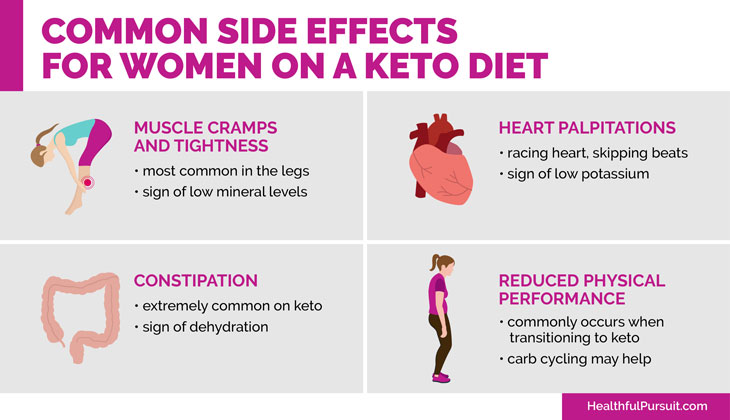
Nutrient Deficiencies
Severely restricting carbohydrates can lead to nutrient deficiencies, especially in vitamins and minerals found in fruits, vegetables, and grains. Careful meal planning and supplementation can mitigate this risk.
Severely restricting carbohydrates, as is the case with the ketogenic diet, indeed poses the risk of nutrient deficiencies, particularly in essential vitamins and minerals that are abundant in fruits, vegetables, and grains. To address this concern, it’s crucial to understand the potential deficiencies that may arise and how to mitigate them through thoughtful meal planning and, if necessary, supplementation:
Fiber Deficiency: Carbohydrates from sources like whole grains, fruits, and vegetables provide essential dietary fiber. Fiber supports digestive health, helps regulate blood sugar levels, and contributes to a feeling of fullness. On a ketogenic diet, which limits carb intake, there’s a risk of insufficient fiber. To mitigate this, keto followers can incorporate low-carb, fiber-rich foods like leafy greens, avocados, and flaxseeds. Additionally, they can consider psyllium husk or other fiber supplements to meet daily fiber goals.
Vitamin C: Fruits like oranges, strawberries, and kiwi are rich in vitamin C, an antioxidant that supports immune function, skin health, and wound healing. Since these fruits are restricted on keto, individuals should seek alternative sources of vitamin C, such as bell peppers, broccoli, and supplements if needed.
Potassium: Potassium is essential for heart health, muscle function, and maintaining proper fluid balance in the body. Many fruits and vegetables, including bananas, sweet potatoes, and spinach, are high in potassium. On a keto diet, potassium-rich options like avocados and leafy greens can be included, but supplementation may be necessary for some individuals to ensure adequate intake.
Magnesium: Magnesium plays a crucial role in muscle and nerve function, bone health, and energy production. Whole grains and legumes are excellent sources of magnesium, but they are limited on a keto diet. Magnesium-rich foods compatible with keto include nuts and seeds, leafy greens, and fish. To bridge the gap, magnesium supplements or Epsom salt baths can be considered.
Folate (Vitamin B9): Folate is essential for DNA synthesis and cell growth. It’s abundant in foods like beans, lentils, and leafy greens. To maintain adequate folate levels on keto, individuals can include spinach, broccoli, and asparagus in their diet. Additionally, they can consider folate supplements, especially if they have specific dietary restrictions.
Vitamin K: Vitamin K is crucial for blood clotting and bone health. It is prevalent in green leafy vegetables like kale, spinach, and Swiss chard. To ensure sufficient vitamin K intake, keto dieters should incorporate these vegetables into their meals. Supplementation may be considered under the guidance of a healthcare professional if needed.
Electrolytes: Sodium, potassium, and magnesium are essential electrolytes that may need extra attention on a ketogenic diet. Due to the diuretic effect of ketosis, individuals may experience electrolyte imbalances, leading to symptoms like muscle cramps or fatigue. Keto followers can manage this by salting their foods moderately, eating potassium-rich foods, and considering electrolyte supplements, especially during the initial stages of the diet.
Multivitamin and Mineral Supplements: To ensure comprehensive nutrient coverage, some individuals may opt for a daily multivitamin and mineral supplement designed for low-carb or keto diets. These supplements are formulated to address common deficiencies associated with carb restriction.
In summary, severely restricting carbohydrates on a ketogenic diet can result in nutrient deficiencies, but careful meal planning and supplementation can help mitigate these risks. It’s important for individuals on the keto diet to monitor their nutrient intake, consult with healthcare professionals or registered dietitians, and make informed choices to maintain overall health and well-being while following this dietary approach.
Explore this link for a more extensive examination of the topic: Ketogenic Diet – StatPearls – NCBI Bookshelf
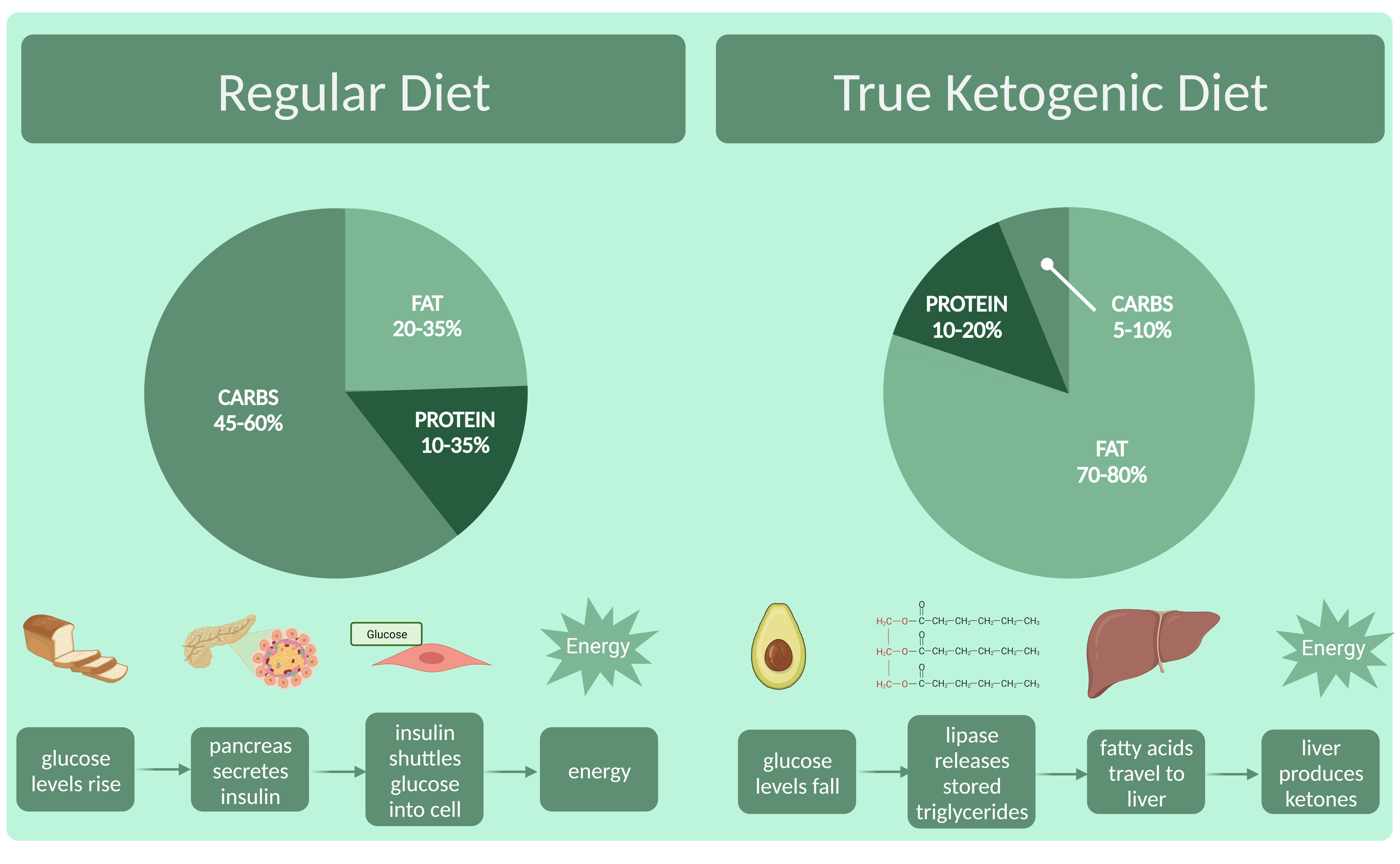
Ketoacidosis
In some cases, prolonged ketosis may lead to ketoacidosis, a serious health condition characterized by extremely high levels of ketones and acidity in the blood. This is more common in individuals with uncontrolled diabetes and is not a concern for those following a standard ketogenic diet.
While ketosis offers numerous health benefits, it’s important to be aware of the distinction between nutritional ketosis, which is generally safe, and ketoacidosis, a potentially life-threatening condition that requires immediate medical attention. Here, we’ll explore the differences and provide insights into how to stay on the safe side of ketosis:
1. Ketosis vs. Ketoacidosis:
- Nutritional Ketosis: This is the state achieved through a well-formulated ketogenic diet or fasting. Blood ketone levels typically range from 0.5 to 3.0 millimoles per liter (mmol/L). It’s a mild and controlled state where ketones are produced within a healthy range.
- Ketoacidosis: This is a severe and uncontrolled condition that primarily affects individuals with diabetes, particularly type 1 diabetes. In ketoacidosis, blood ketone levels can exceed 20 mmol/L, leading to extreme acidity in the blood. It’s a medical emergency that can result in coma or even death if left untreated.
2. Ketoacidosis and Diabetes:
- Type 1 Diabetes: People with type 1 diabetes are at a higher risk of ketoacidosis because their bodies cannot produce insulin, a hormone that regulates blood sugar. Without insulin, glucose levels rise, and the body resorts to burning fat excessively, leading to the production of high levels of ketones.
- Type 2 Diabetes: While less common, ketoacidosis can occur in individuals with type 2 diabetes, especially if they are insulin-dependent and experience severe insulin deficiency.
3. Preventing Ketoacidosis:
- Monitoring: Regular blood sugar and ketone monitoring is essential for individuals with diabetes who are following a ketogenic diet. This helps detect any abnormalities in blood ketone levels early on.
- Insulin Management: Proper insulin management is crucial for individuals with diabetes. Ensuring consistent insulin administration and adjusting doses as needed is vital to prevent excessive ketone production.
- Hydration: Staying well-hydrated can help dilute ketone concentrations in the blood and reduce the risk of ketoacidosis.
- Medical Guidance: Those with diabetes who want to explore a ketogenic diet should do so under the guidance of a healthcare provider or registered dietitian experienced in managing diabetes and ketosis.
4. Standard Ketogenic Diet Safety:
- For individuals without diabetes, following a standard ketogenic diet is generally safe and does not lead to ketoacidosis.
- The ketone levels reached in nutritional ketosis are well below the dangerous levels associated with ketoacidosis.
5. Recognizing Symptoms:
- Symptoms of ketoacidosis include extreme thirst, frequent urination, confusion, nausea, vomiting, abdominal pain, and difficulty breathing. If you experience these symptoms, seek immediate medical attention.
In conclusion, while ketoacidosis is a serious concern, it is distinct from the controlled state of ketosis achieved through a standard ketogenic diet. For individuals without diabetes, following a keto diet can be done safely with appropriate monitoring and guidance. However, those with diabetes should exercise caution, work closely with healthcare professionals, and monitor their blood glucose and ketone levels diligently to avoid any risk of ketoacidosis.
If you’d like to dive deeper into this subject, there’s more to discover on this page: Diabetic ketoacidosis – Symptoms & causes – Mayo Clinic

Conclusion
Ketosis is a metabolic state that has garnered attention for its potential health benefits, particularly in the realms of weight loss, blood sugar management, and improved mental clarity. However, it’s essential to approach the ketogenic diet with knowledge and moderation, ensuring a balanced intake of nutrients while reaping the advantages of ketosis. Consulting with a healthcare provider or registered dietitian is highly recommended before embarking on this dietary journey to achieve the best possible results for your health and well-being.
Ketosis stands as a metabolic marvel, captivating the world of health and wellness for its potential to unlock a multitude of benefits, including weight loss, blood sugar regulation, and enhanced mental clarity. However, as with any dietary strategy, the path to ketosis should be tread with knowledge, mindfulness, and a commitment to balanced nutrition. Here’s a deeper exploration of the importance of approaching the ketogenic diet with awareness and moderation:
1. A Path to Wellness: Ketosis offers a promising pathway to wellness, with a track record of aiding individuals in achieving their health and fitness goals. It has been hailed for its capacity to promote weight loss by turning the body into a fat-burning machine, stabilize blood sugar levels, and sharpen mental acuity. These are compelling reasons that pique the interest of many.
2. The Role of Knowledge: The journey into ketosis begins with knowledge—an understanding of the dietary principles, metabolic mechanisms, and potential effects on the body. This knowledge equips you with the tools to make informed choices and optimize the benefits of ketosis while minimizing potential risks.
3. The Balance of Nutrients: Achieving ketosis is not synonymous with sacrificing nutritional balance. It’s vital to emphasize the importance of a well-rounded diet even within the framework of the ketogenic approach. By including an array of low-carb vegetables, quality protein sources, and healthy fats, you can ensure that your body receives a spectrum of essential nutrients.
4. Professional Guidance: The guidance of healthcare providers and registered dietitians is invaluable when embarking on the ketogenic journey. They can assess your individual health profile, help you tailor the diet to your unique needs, and provide ongoing support and monitoring. Their expertise ensures that you navigate the path to ketosis safely and effectively.
5. The Power of Moderation: Moderation is the cornerstone of a sustainable ketogenic lifestyle. While the diet restricts carbohydrate intake, it doesn’t mean that all carbohydrates are off-limits. Strategic carb choices, such as fibrous vegetables and low-carb fruits, can be incorporated in moderation, allowing for a more varied and enjoyable dietary experience.
6. Individualized Approach: Recognize that the ketogenic diet is highly individualized. What works seamlessly for one person may require adjustments for another. Factors like metabolism, activity level, and personal preferences all play a role in shaping your unique approach to ketosis.
7. Monitoring and Feedback: Regular monitoring of key health markers, including blood glucose, cholesterol levels, and overall well-being, is essential. These markers provide valuable feedback on how your body is responding to ketosis and allow for timely adjustments as needed.
8. Long-Term Sustainability: Sustainability is a crucial consideration when adopting the ketogenic lifestyle. While it may yield impressive short-term results, it’s vital to assess whether it aligns with your long-term health and dietary goals. A flexible and balanced approach that incorporates periodic adjustments may be the key to its sustainability.
In summary, ketosis holds the promise of numerous health benefits, but it’s a journey that should be embarked upon with consciousness and care. Armed with knowledge, a commitment to balanced nutrition, and the guidance of healthcare professionals, you can harness the advantages of ketosis while safeguarding your well-being. Your path to ketosis is unique, and it’s a journey that can be both transformative and enjoyable when approached with awareness and moderation.
To expand your knowledge on this subject, make sure to read on at this location: Advantages and Disadvantages of the Ketogenic Diet: A Review …
More links
Additionally, you can find further information on this topic by visiting this page: The Science Behind Ketogenic Diets, Or Why We Get Fat And What …
